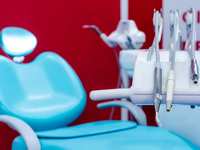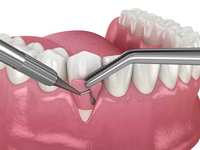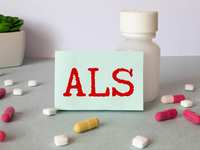What To Do in the Event of a Dental Emergency

Welcome to our blog, where we tackle the unexpected twists and turns that life throws at us! Today, we're diving into a topic that can cause anyone's heart to skip a beat: dental emergencies. We've all been there – a sudden toothache that feels like a lightning bolt in your mouth or an accidental slip resulting in a chipped tooth.
When these dental disasters strike, it's important to know how to handle them swiftly and effectively. So buckle up and get ready as we walk you through what to do in the event of a dental emergency. From common types of emergencies to immediate steps you should take, we've got you covered with valuable tips and expert advice. Let's jump right in!
Common Types of Dental Emergencies
When it comes to dental emergencies, there are several types that can occur. One common type is a toothache, which can range from mild discomfort to severe pain. This could be a sign of an underlying issue such as tooth decay or infection.
Another common dental emergency is a broken or chipped tooth. This can happen due to trauma, biting down on something hard, or even grinding your teeth at night. A broken or chipped tooth not only affects the appearance of your smile but can also cause sensitivity and pain.
A knocked-out tooth is another urgent dental situation that requires immediate attention. If you have a permanent tooth knocked out, it's essential to act quickly and try to preserve the tooth by keeping it moist until you can see the Dentist Woodlands Texas.
Other dental emergencies may include lost fillings or crowns, abscesses or infections in the mouth, and injuries to the soft tissues such as lips, tongue, or cheeks.
Remember that these are just some examples of common dental emergencies. It's vital to seek professional help as soon as possible when faced with any oral health issue that causes significant pain or discomfort. Delaying treatment could potentially lead to further complications and more extensive procedures down the line.
Steps to Take Immediately After a Dental Emergency Occurs
When a dental emergency strikes, it's important to act quickly and take the necessary steps to minimize pain and prevent further damage. Here are some immediate actions you should consider after a dental emergency occurs.
First and foremost, stay calm. Panicking will only make things worse and hinder your ability to think clearly. Assess the situation and determine the severity of the emergency. If there is severe bleeding or intense pain, it may be best to seek immediate professional help by calling your dentist or visiting an emergency dental clinic.
If a tooth has been knocked out, time is of the essence. Find the tooth if possible, being careful not to touch or disturb the root. Rinse it gently with water without scrubbing or using any cleaning agents. Try to reinsert the tooth back into its socket if you can do so comfortably.
For a cracked or broken tooth, rinse your mouth with warm saltwater to clean any debris that may have accumulated. Apply a cold compress on your cheek near the affected area to reduce swelling and relieve pain until you can see your dentist.
In cases where an object gets stuck between teeth, try using dental floss gently to remove it without causing injury. Avoid using sharp objects as they can harm gums or cause further damage.
Remember that these steps are general guidelines for common dental emergencies, but every situation is unique. It's vital to contact your dentist as soon as possible for professional advice tailored specifically to your case.
By taking prompt action and following these initial steps after a dental emergency occurs, you increase your chances of successful treatment and recovery while minimizing potential complications down the line
Tips for Handling Different Types of Emergencies
When it comes to dental emergencies, different situations call for different actions. Here are some tips on how to handle various types of dental emergencies:
1. Toothache: If you're experiencing a toothache, rinse your mouth with warm water and gently floss around the affected area to remove any trapped food particles. Take an over-the-counter pain reliever if needed, but avoid placing aspirin directly on the tooth or gums.
2. Knocked-out tooth: Time is crucial when dealing with a knocked-out tooth. Hold it by the crown (the top part) and rinse off any dirt or debris without scrubbing it. Try to reinsert the tooth back into its socket if possible, but if not, place it in milk or saliva until you can see a dentist.
3. Broken or chipped tooth: Rinse your mouth with warm water and apply cold compresses outside the affected area to reduce swelling. Save any broken pieces and bring them with you when seeking dental care.
4. Lost filling or crown: Protect the exposed area by covering it with temporary dental cement from a drugstore until you can visit your dentist for proper repair.
5. Soft tissue injuries: In case of cuts, tears, or bleeding in your lips, tongue, cheeks, or gums due to an accident or injury, clean the area carefully with warm water and apply gentle pressure using gauze pads.
Remember that these tips are only meant as temporary solutions until professional help from the Dentist Woodlands Texas is available. It's essential to contact your dentist as soon as possible after any dental emergency occurs.
By being prepared and knowing what steps to take during a dental emergency situation, you'll be better equipped to handle unexpected oral health issues should they arise!
Conclusion
In the event of a dental emergency, it is crucial to remain calm and take immediate action. Remember that time is of the essence when it comes to saving teeth and minimizing further damage or pain during a case of Emergency Dental Woodlands Texas. By following the steps outlined above and seeking professional assistance from the Dentist Woodlands, TX, as soon as possible, you can increase your chances of a positive outcome.
However, prevention is always better than cure. It's important to maintain good oral hygiene practices such as regular brushing, flossing, and dental check-ups to minimize the risk of dental emergencies. Additionally, wearing protective gear during sports activities can help prevent injuries that may lead to tooth trauma.
Remember, if you ever find yourself in a dental emergency situation, don't hesitate – reach out for professional help immediately. Your dentist will be able to provide expert guidance and treatment tailored specifically to your needs.













